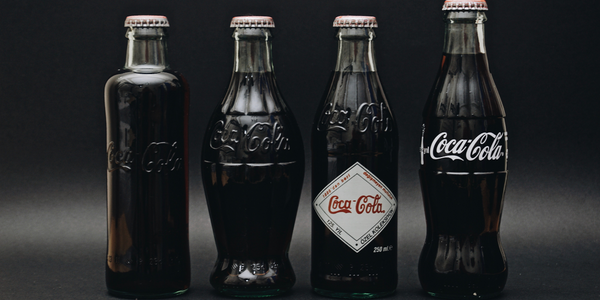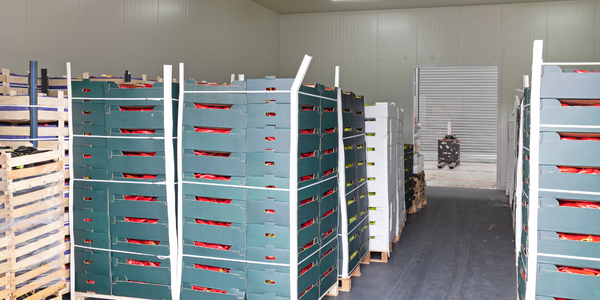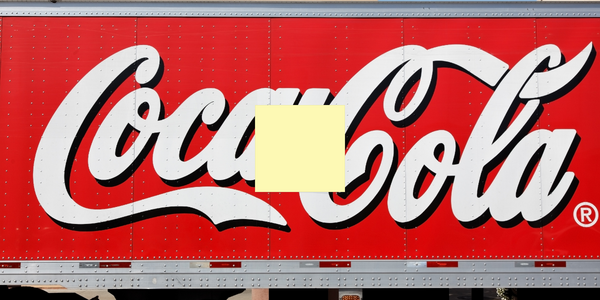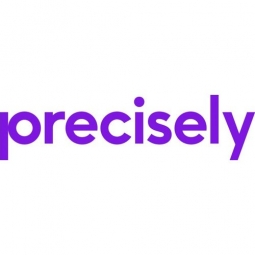公司规模
Large Corporate
地区
- America
国家
- United States
产品
- Assure iTERA HA
- EDI Integrator® from EXTOL International Inc.
技术栈
- IBM i servers
- EDI solution from EXTOL
实施规模
- Enterprise-wide Deployment
影响指标
- Productivity Improvements
- Customer Satisfaction
技术
- 功能应用 - 企业资源规划系统 (ERP)
- 应用基础设施与中间件 - 数据交换与集成
适用行业
- 食品与饮料
适用功能
- 商业运营
- 物流运输
用例
- 预测性维护
- 供应链可见性(SCV)
服务
- 系统集成
- 培训
关于客户
Krispy Kreme Doughnuts is a well-established brand headquartered in Winston-Salem, North Carolina, with a significant international presence. The company operates in the restaurant industry and is known for offering nearly 30 varieties of hot, fresh doughnuts. With a workforce of 4,759 employees, Krispy Kreme produces 7.5 million baked goods daily and operates 395 company-owned and franchise stores. The company is publicly traded on the NYSE under the symbol KKD. Krispy Kreme's business environment is characterized by its aggressive inventory control process, ensuring that customers receive the freshest baked goods possible. The company manages a complex supply chain with sophisticated technology, requiring 100 percent system reliability to maintain its operations. Krispy Kreme's operations span across the US and eight other countries, with products sold in store-factories, satellite locations, and supermarkets. The company's commitment to quality and freshness is central to its brand-building efforts.
挑战
Krispy Kreme Doughnuts faces a critical challenge in maintaining its reputation for serving hot, fresh doughnuts at any time of the day. The company operates a complex supply chain that requires 100 percent system reliability to ensure the timely delivery of fresh inventory. Any disruption in system availability could negatively impact their operations, especially given their aggressive inventory control process that involves replacing products that are just a few hours old. The company manages its wholesale operations with an EDI solution from EXTOL running on an IBM i server, supporting 400 users. Additionally, Krispy Kreme relies on an electronic billing system to generate thousands of invoices monthly for large retail outlets, where delayed billings could severely impact cash flow. The company sells its products in numerous locations across the US and eight other countries, making system reliability crucial for maintaining supply chain integrity and avoiding disruptions that could harm their wholesale operations.
解决方案
To address the challenge of maintaining system reliability, Krispy Kreme decided to implement Assure iTERA HA from Precisely. This decision was based on recommendations from trusted sources familiar with the product. The implementation involved installing the product on Krispy Kreme's production IBM i server and remotely on a backup system, with assistance from technicians at Precisely's development and training facility in Salt Lake City, Utah. The installation process was straightforward, requiring only system access for the technicians to handle the setup. Krispy Kreme's IT team, consisting of only 28 people, needed a solution that could be managed with minimal effort. Two technicians from Krispy Kreme attended a three-day training session in Salt Lake City, where they configured their own machines remotely with guidance from a knowledgeable mentor. This approach to training provided a thorough understanding of the HA environment, enabling Krispy Kreme to manage the system effectively. The backup machine is located in a separate building several miles away from the production computer, connected via a 100-megabyte Ethernet link. Despite a 12-hour downtime in the data communications line, the system was able to replicate over 12 million transactions without errors, demonstrating the resilience and reliability of the Assure iTERA HA solution.
运营影响
数量效益

Case Study missing?
Start adding your own!
Register with your work email and create a new case study profile for your business.
相关案例.

Case Study
The Kellogg Company
Kellogg keeps a close eye on its trade spend, analyzing large volumes of data and running complex simulations to predict which promotional activities will be the most effective. Kellogg needed to decrease the trade spend but its traditional relational database on premises could not keep up with the pace of demand.

Case Study
HEINEKEN Uses the Cloud to Reach 10.5 Million Consumers
For 2012 campaign, the Bond promotion, it planned to launch the campaign at the same time everywhere on the planet. That created unprecedented challenges for HEINEKEN—nowhere more so than in its technology operation. The primary digital content for the campaign was a 100-megabyte movie that had to play flawlessly for millions of viewers worldwide. After all, Bond never fails. No one was going to tolerate a technology failure that might bruise his brand.Previously, HEINEKEN had supported digital media at its outsourced datacenter. But that datacenter lacked the computing resources HEINEKEN needed, and building them—especially to support peak traffic that would total millions of simultaneous hits—would have been both time-consuming and expensive. Nor would it have provided the geographic reach that HEINEKEN needed to minimize latency worldwide.

Case Study
Energy Management System at Sugar Industry
The company wanted to use the information from the system to claim under the renewable energy certificate scheme. The benefit to the company under the renewable energy certificates is Rs 75 million a year. To enable the above, an end-to-end solution for load monitoring, consumption monitoring, online data monitoring, automatic meter data acquisition which can be exported to SAP and other applications is required.

Case Study
Coca Cola Swaziland Conco Case Study
Coco Cola Swaziland, South Africa would like to find a solution that would enable the following results: - Reduce energy consumption by 20% in one year. - Formulate a series of strategic initiatives that would enlist the commitment of corporate management and create employee awareness while helping meet departmental targets and investing in tools that assist with energy management. - Formulate a series of tactical initiatives that would optimize energy usage on the shop floor. These would include charging forklifts and running cold rooms only during off-peak periods, running the dust extractors only during working hours and basing lights and air-conditioning on someone’s presence. - Increase visibility into the factory and other processes. - Enable limited, non-intrusive control functions for certain processes.

Case Study
Temperature Monitoring for Restaurant Food Storage
When it came to implementing a solution, Mr. Nesbitt had an idea of what functionality that he wanted. Although not mandated by Health Canada, Mr. Nesbitt wanted to ensure quality control issues met the highest possible standards as part of his commitment to top-of-class food services. This wish list included an easy-to use temperature-monitoring system that could provide a visible display of the temperatures of all of his refrigerators and freezers, including historical information so that he could review the performance of his equipment. It also had to provide alert notification (but email alerts and SMS text message alerts) to alert key staff in the event that a cooling system was exceeding pre-set warning limits.

Case Study
Coca-Cola Refreshments, U.S.
Coca-Cola Refreshments owns and manages Coca-Cola branded refrigerators in retail establishments. Legacy systems were used to locate equipment information by logging onto multiple servers which took up to 8 hours to update information on 30-40 units. The company had no overall visibility into equipment status or maintenance history.







